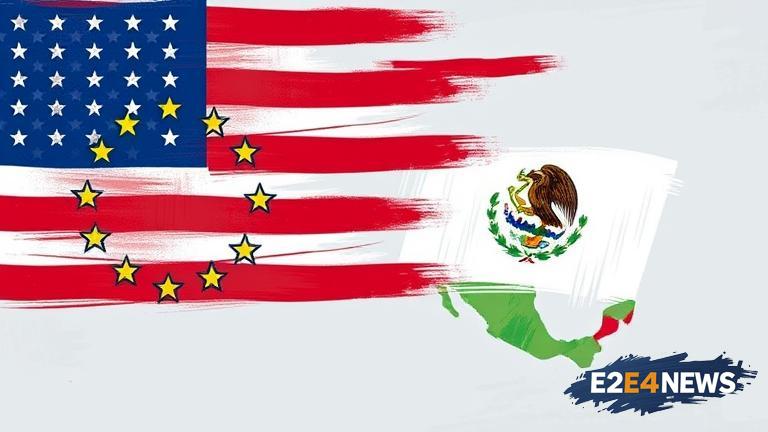The United States has announced plans to impose a 30% tariff on certain goods from the European Union and Mexico, effective August 1. This move is expected to escalate trade tensions between the US and its major trading partners. The tariffs will apply to a range of products, including steel, aluminum, and agricultural goods. The decision has been met with criticism from EU and Mexican officials, who argue that the tariffs will harm their economies and lead to retaliatory measures. The US has cited national security concerns and unfair trade practices as the reason for the tariffs. The EU has threatened to impose its own tariffs on US goods in response, which could lead to a trade war. Mexico has also vowed to take retaliatory measures, including imposing tariffs on US goods such as corn, soybeans, and pork. The tariffs are expected to have a significant impact on the global economy, particularly in the affected industries. The US has been engaged in a series of trade disputes with its major trading partners, including China, the EU, and Mexico. The trade tensions have been fueled by concerns over unfair trade practices, intellectual property theft, and national security. The US has imposed tariffs on several countries in recent years, including China, which has led to a significant escalation in trade tensions. The EU and Mexico have been seeking to negotiate a trade agreement with the US, but the talks have been stalled due to disagreements over key issues. The imposition of tariffs is expected to further complicate the trade negotiations and lead to a deterioration in relations between the US and its trading partners. The US has argued that the tariffs are necessary to protect its industries and workers, but critics argue that they will ultimately harm the US economy and lead to higher prices for consumers. The tariffs are also expected to have a significant impact on the global supply chain, particularly in industries such as automotive and aerospace. The US has been seeking to renegotiate its trade agreements with its major trading partners, including the North American Free Trade Agreement (NAFTA) and the US-EU trade agreement. The imposition of tariffs is seen as a key component of the US trade strategy, which aims to reduce the trade deficit and promote American industries. However, the move has been met with criticism from many experts, who argue that it will ultimately harm the US economy and lead to a trade war.
